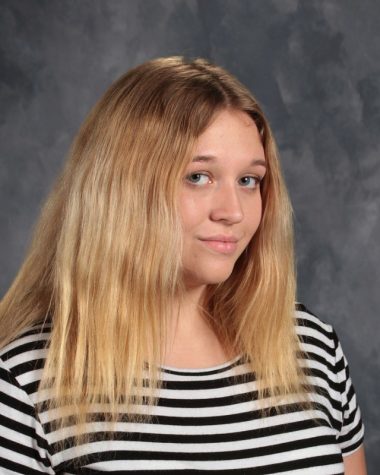Filters, photo manipulation tools can lead to poor self esteem
February 15, 2019
An unhealthy addiction is on the rise for teenagers, and most of them don’t even realize it.
Some teenagers have adapted a habit of altering their selfies using social media filters and Photoshop following in the footsteps of their favorite celebrities and diminishing their mental health in the process.
Frequent Snapchat users like sophomore Kasie De La Cruz have started to realize the negative effects of filters.
“It starts to take a toll on your brain,” De La Cruz said. “Once you start changing the way you look, it just all seems to make your self feel worse.”
Some filters, such as the infamous dog filter on Snapchat, are mostly used for fun. However, apps like Facetune and Photoshop can be used by celebrities and everyday people alike to hide any blemishes or “imperfections.”
“Filters and Photoshop effects teenagers’ self esteem and how they view themselves by making them believe they have to look flawless to be pretty,” therapist Sheree Mitchell said. “Over time they may not accept their blemishes which then results in negative self-image and low self-esteem.”
Snapchat and Instagram, two apps famous for their filters and edited images, were ranked lowest for users’ wellbeing according to a study by Royal Society for Public Health and Young Health Movement.
“I believe that teenagers, and more commonly females, given the society we live in, use Snapchat filters because they think a picture of them in their purest, most natural form of beauty isn’t good enough,” senior Elijah Theulen said. “Instead of taking a picture of themselves as they really are, they decide to use filters thinking it will make them look ‘prettier’ when in reality it only masks their true beauty.”
Junior Serena Bacon disagrees, believing that filters can be used as a positive and may actually boost self esteem. Some example of this may be if someone were to find a favorite filter and gain more confidence to post pictures.
“I feel like it could potentially effect teenagers’ self esteem in a both negative and positive way, depending on how you look at it,” Bacon said.
Some worry that filters will do the opposite, causing teenagers to normalize a perfection that could never be reached.
“This becomes a habit for teens because they are bombarded by these images through social media like Instagram as well as reality TV,” Mitchell said.
A study from the University of Pittsburgh School of Medicine showed that the more time young adults spent on social media, the more likely they are to report symptoms of depression.
The use of filters and photo editing apps are prevalent on all social network platforms and photo “corrections” are seen nearly everywhere from magazines to billboards and photos online. Whether people realize it, these apps leave an impact on their self image- good or bad.

